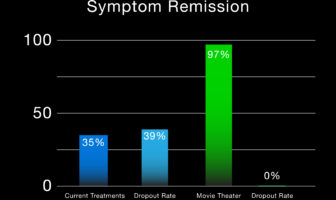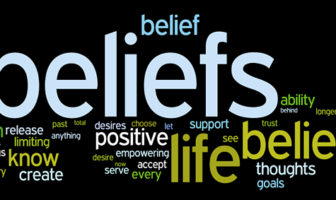
THE ONE SKILL YOU NEED TO RESOLVE ALL YOUR CONFLICTS (and without which you are in big trouble)
In any discipline, it is often true that when we look at extreme examples of that discipline that we can learn important distinctions of how it works best. When it comes to conflict resolution, I suggest we turn to the skills and experience that negotiators use in extreme situations.
Think for example of a crisis negotiator dealing with a hostage-taking situation. He or she operates in a very stressful situation, under enormous pressure, and must do everything in their power to save the life of the hostages.
What is the one skill that crisis negotiators absolutely need if they want to save the life of hostages?
It is the ability to connect and to bond with the hostage taker. In NLP, we call it creating Rapport. Unless this happens, there is no way a crisis negotiator will be able to have a positive influence on the captor.
Working on ceasefires with terrorist groups, I have found myself sitting across leaders of terrorist organizations. I have experienced first-hand the power of being able to connect and to build rapport, instantly, with your questioners. I have never appreciated the power of NLP more than in those situations.
To deepen rapport I use a variety of tools and strategies, as per the situation and the results that I want to achieve, including cooking Bolognese pasta in high-security prisons, but I will dwell on that specific skill at another point in time.
Today, I want to emphasize how NLP gives you a practical, effective and powerful way to build rapport. I use it daily. In fact, when you master the basic skills of NLP you can positively influence a situation you find yourself in, remain confident even in stressful situations, and connect with others without losing control of the situation. It may not be a matter of life or death, but in our personal and professional life, we too can feel like a hostage to a situation. We want a way out; we just do not know what step to take, where to turn.
When you use NLP skills properly, not unlike Gandhi, Nelson Mandela, Martin Luther King or Milton Erickson, you become the leader who sets the frame.
The capacity to building rapport, indeed, was one of the things that caught the attention of Richard Bandler and John Grinder, the founders of NLP, when they observed the masters in connecting such as Milton Erickson and Virginia Satir.
Building rapport is also among the very first set of skills you learn when you take a proper NLP training. Because building rapport right here and right now is essential if you want to communicate effectively—whether it is your spouse, your kids, your coworkers or your client.
This is even more so, when you are dealing with a conflict. In fact, building rapport is the first step towards resolution.
NLP teaches us several strategies to build rapport. Here I want to suggest a practical and easy to implement technique, that is known as Matching and Mirroring.
The emphasis is on body language. In other words, this technique suggests to assume the body postures, gestures, breathing pace, energy levels and voice tonality (how you sound) and speed of speech. It’s not about mimicry, but rather about being in synch with the other person.
For example, if the person sitting across you leans against the shoulder of the chair, to create rapport, you might want to assume a similar position. In fact, if you lean forward and put your forearms on the table, unconsciously the other person might perceive you as invasive and even aggressive.
Practicing this technique helps us to acquire a variety of modalities on how to connect with others. We also become aware of how we have been using our body when we communicate, and how, inadvertently, we might have send the wrong message, regardless of our intention.
Let me also emphasize, that by focusing attention to how other people use their non-verbal communication, that is the form, we are able to respond and to adapt in a way that is respectful of cultural diversity. Matching the other person is a powerful and effective way to connect immediately with the other and to acknowledge the other.
Once this is done, then you can lead the relationship towards a new level of understanding and to have a positive influence on the overall situation.
Building rapport is the first essential step if you want to find a path to resolution.





 Download Doug O’Brien’s paper,
“Be your Best with Self Hypnosis”
Download Doug O’Brien’s paper,
“Be your Best with Self Hypnosis”